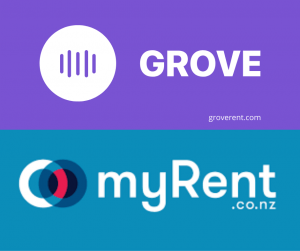The latest news for New Zealand Landlords and Tenants
How to make sure your tenant pays rent on time
Overdue or unpaid rent is an issue you need to be aware of as a landlord. It’s one of the most common cases seen at the Tenancy Tribunal and if you’re a landlord you should be taking some steps of precaution to avoid it.
While we can’t promise that your tenant will pay rent on time every time, we can promise that by following all of the steps below you are less likely to encounter rent arrears as an issue.
Choosing your tenant

Before you even talk to your tenant about rent payments it’s important to conduct your own due diligence to ensure you are choosing a tenant you trust to pay rent. Some of these steps might include:
- Conducting a background and credit check on the prospective tenant so you have a clear picture of all of their credit history. For more information on the best place to do this, see this article we wrote on tenant checks.
- Checking two or more references they have provided by calling these contacts and asking them relevant questions. For a list of specific questions that you should ask references see this article.
- Asking the prospective tenant relevant questions that can give you a better idea of their renting history and renting requirements. As there are laws around what you can and cannot ask we recommend using this article to guide this conversation.
Once you feel confident that your tenant is the right tenant it’s time to take some other steps to ensure they pay rent on time.
Include a clause in your lease

In a lease you are legally required to state the rent amount and how often this needs to be paid. Both of these things need to be agreed on by you and your tenant so it’s a good idea to discuss this with them before you put it in writing.
A good tip here is to ask your tenant when their pay day is and sync up rent payments with this. That way you know your tenant is in a good situation to have rent ready for the rent due date and you’re less likely to encounter the issue of unpaid rent.
Once you have agreed on and stated the rent amount and when each payment is due you will also want to mention the forms of payment you accept for rent.
Some payment options you could choose from include:
- Paying by bank transfer
- Using an automated rent collection app such as Grove or Myrent
- Direct debits
- Cash (although you need to be aware of the risks when using this method)
Late payment consequences for unpaid rent

A late payment consequence could include:
- reporting rent arrears to credit bureaus or
- issuing the tenant with a 14-day notice to remedy which you can take up with the Tenancy Tribunal. (This is something you need to do anyway if the rent goes unpaid for 2 weeks).
More information on what your tenancy needs to include and how to charge rent can be found here.
Encourage automatic withdrawals
Encouraging your tenant to set up an automatic payment every week, fortnight, or whenever rent is due is a good way to avoid late payments.Tenants can easily organise this through their banking app or through other applications that allow this.
An automated rent collection app such as Grove or Myrent are great options to ensure rental payments land in your bank account when they’re supposed to.
Just like an automatic bank transfer you can organise an automatic payment from your tenant to your account through these apps. However, Grove and Myrent go further than just getting the money from a to b as they also notify you when rent has or hasn’t been paid and will notify tenants when they are late paying. Other features that these apps offer that automatic bank transfers won’t allow include:
- Keeping an itemised rent book which you can easily download (this keeps you compliant with Insurance)
- Issuing digital receipts to tenants
Grove is also an awesome way for landlords who live overseas to collect and track rental payments as this app allows multi-currency collection.
Overall, automatic withdrawals avoid the hassle of tenants forgetting to pay rent on time as payments will make their way to your account on their own so it’s definitely something you should try to set up with your tenant.
Set-up reminders and notify tenants of unpaid rent immediately
If an automatic payment is out of the question (or you just want to be super sure) you can also send your tenant rent reminders. This can be a friendly message in the form of a text or email that reminds your tenant that rent is due soon.
It’s wise to send one of these messages 24 hours before the rent due date to ensure enough time for the tenant to organise this but not too much time that they will forget.
You can also use rent collection apps that will send their own reminders to tenants in the form of a phone notification. These are ideal as you will not need to take the time out to write and send out your own.
With rent collection apps like Grove and Myrent, you also won’t need to worry about having to recognise unpaid rent yourself. These apps will pick this up, notify you and then send an automatic reminder to your tenant that their rent is overdue and needs to be paid asap.
Rewards for payments
Surprise rewards are a great way to encourage your tenants to pay rent on-time. Something like a coffee voucher for the cafe down the road or a supermarket voucher can make a difference. Offer these after the tenants have paid their first two weeks of rent and leave a thank you note. It might cost you a little bit in the beginning but it will encourage good paying habits for the rest of the tenancy and it will make your tenants feel valued.
Rent collection apps

We’ve already touched on some of the pros of collecting rent through an app such as:
- Being able to set up automatic rent payments
- Being notified when rent has or hasn’t been paid
- Having automatic reminders sent out to tenants without you needing to remember
Rent collection apps also keep an itemised rent book which shows all of the details of every rent payment that your tenant has made to you. As keeping a rent record is a landlord’s obligation under most insurance policies this is a great way to ensure you stay compliant. It’s also a much easier way to present the information you need to when making claims as you won’t need to sift through bank statements to pull out the relevant transactions – an issue that many landlords encounter using everyday bank transfers.
- Track rent payments
- Send your tenant a notification when rent is due
- Send you a notification if rent is late
Two rent collection apps that we do recommend looking into are Grove and Myrent.
Learn more about Grove here and learn more about Myrent here.




